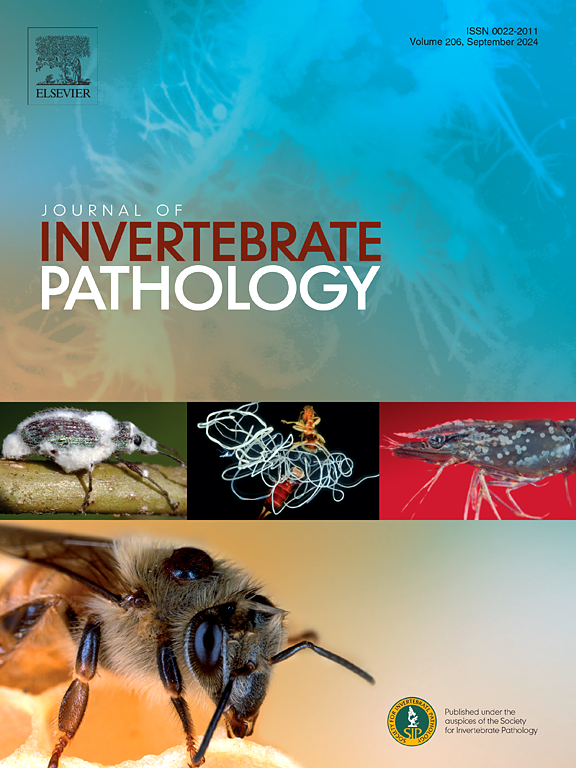蜂胶可以减少蜜蜂微孔虫感染,增强蜜蜂的免疫反应,而不会破坏肠道微生物群
IF 3.6
3区 生物学
Q1 ZOOLOGY
引用次数: 0
摘要
蜜蜂(Apis mellifera)在环境中发挥着至关重要的作用,是必不可少的传粉者,为农业生产和自然生态系统多样性做出了贡献。然而,蜜蜂的健康受到多种压力因素的威胁,包括螨虫、病毒和微孢子虫的感染。为了抵御入侵者,这些昆虫进化出了社会和个体机制,包括收集和使用蜂胶。本研究发现,在实验室条件下,蜂胶乙醇提取物(EEP)的摄入降低了蜜蜂的感染水平,增加了免疫相关基因(膜蜂素或葡萄糖氧化酶)的表达水平,增强了蜜蜂的免疫能力。此外,它不影响肠道微生物群的多样性和组成。尽管有这些有希望的实验室结果,但在野外条件下,对蜂群施用EEP并没有对蜂群强度或病原体感染水平产生有益的影响。未来的研究应优化应用方法和频率,以最大限度地提高蜂群健康的潜在效益。本文章由计算机程序翻译,如有差异,请以英文原文为准。

Propolis can reduce Nosema ceranae infection and enhance the immune response in honey bees, without disrupting the gut microbiota
Honey bees (Apis mellifera) play a crucial role in the environment, being essential pollinators and contributing to agricultural production and natural ecosystem diversity. However, honey bee health is threatened by multiple stressors, including infection by mites, viruses and microsporidia. To defend against invaders, these insects have evolved social and individual mechanisms, including the collection and use of propolis. In this study, we found that under laboratory conditions, the consumption of Ethanolic Extract of Propolis (EEP) reduced the infection level of the pathogen Nosema ceranae and increased the expression levels of immune-related genes (hymenoptaecin or glucose oxidase) in challenged bees, enhancing their immunocompetence. Moreover, it did not affect the diversity and composition of the gut microbiota. Despite these promising laboratory results, the administration of EEP to honey bee colonies under field conditions did not produce a beneficial effect on colony strength or pathogen infection levels. Future studies should be conducted to optimize the method and frequency of applications to maximize potential benefits for honey bee colony health.
求助全文
通过发布文献求助,成功后即可免费获取论文全文。
去求助
来源期刊
CiteScore
6.10
自引率
5.90%
发文量
94
审稿时长
1 months
期刊介绍:
The Journal of Invertebrate Pathology presents original research articles and notes on the induction and pathogenesis of diseases of invertebrates, including the suppression of diseases in beneficial species, and the use of diseases in controlling undesirable species. In addition, the journal publishes the results of physiological, morphological, genetic, immunological and ecological studies as related to the etiologic agents of diseases of invertebrates.
The Journal of Invertebrate Pathology is the adopted journal of the Society for Invertebrate Pathology, and is available to SIP members at a special reduced price.

 求助内容:
求助内容: 应助结果提醒方式:
应助结果提醒方式:


